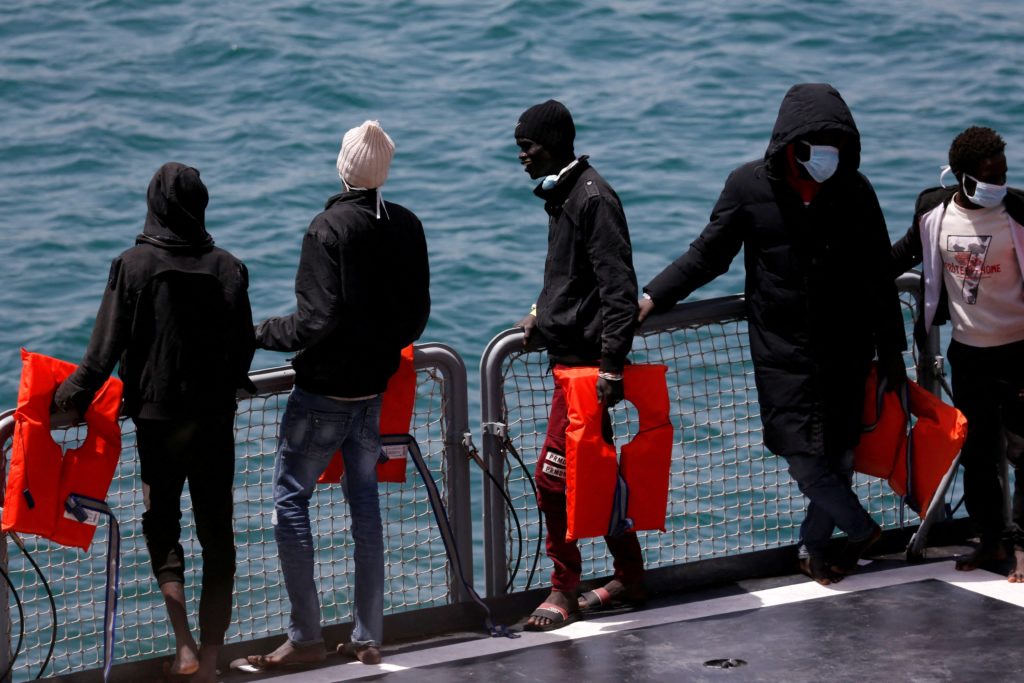Since its establishment in 1971, the John XXIII Peace Lab has sought to be a beacon of hope and justice for the needy in Malta, and more recently, it has become a source of unprejudiced welcome for migrants and asylum seekers entering Europe.
Malta for years has borne the brunt of Europe’s migration crisis and has received a disproportionate number of incoming asylum seekers. The small Mediterranean island nation has also been among the most lenient in terms of migration policy, and the country’s bishops have often echoed Pope Francis’s call to welcome and support newcomers.
The John XXIII Peace Laboratory for the past 20 years has dedicated itself specifically to providing shelter for migrants and refugees and has become one of the top volunteer organizations in Malta to do so.
It will be among Pope Francis’s many stops during his April 2-3 visit to Malta, during which he will visit the cities of Valletta, Rabat, and Floriana, as well as the island of Gozo.
Located in Ħal Far, one of Malta’s industrial estates, the center was originally part of a British airfield that saw heavy combat and air raids during the second world war. It now sits between the Lyster Barracks, a detention center for asylum seekers, and Malta’s two largest reception centers composed, like many others, of prefabricated containers in which the migrants live while waiting to be processed.
The transition from a war station to a peace hub was a largely political move. It was established in 1971 in response to an appeal made by Pope John XXIII, author of the landmark 1963 encyclical Pacem in Terris, for the world to reflect on peace, focusing mainly on justice and human rights.
In a feature on the Peace Lab done by the United Nations’ High Commissioner for Refugees (UNHCR), the founder of the Peace Lab, Franciscan Father Dionysius Mintoff, said, “Ħal Far was a hub and center of war. It saw thousands of soldiers and sailors coming from the entire Commonwealth.”
“As a Franciscan, and a Maltese who has personally seen the outcomes of war, I decided to open a space that advocates for peace education in Malta,” Mintoff said. “We transformed this space from a place of war to a place of peace.”
Mintoff apparently decided to convert the center into a place of welcome for migrants after hearing loud screams coming from the army barracks across the road from the Peace Lab. After inquiring what the commotion was about the next morning, Mintoff was told by guards that a group of migrants from several African countries had arrived by boat seeking asylum.
“There was a lot of panic that spread around Malta after this. The Maltese thought that these individuals would spread disease, take their jobs, and most of all take over our religion,” Mintoff said, referring to the Catholic faith.
In response, Mintoff converted the Peace Lab into a place of welcome, acceptance, and inclusion, and a space where people “can learn and be free. A place where people of different religions can live together peacefully. A place where people can be happy.”
As a concrete sign of this inclusion, the Peace Lab has a church, a mosque, and a prayer room for all religions on its grounds. Mintoff himself often joins the Muslims, who are the majority of residents, to pray inside the mosque.
“When you pray with others it means that you live with them, you know them, and they know you. For remember: To God there is no one or the other,” he said.
The Peace Lab has offered shelter to migrants and refugees since February 2002, initially hosting 45 immigrants at a time. According to the center’s website, in November 2005 they signed an agreement with the Ministry for the Family and Social Solidarity to provide accommodation for a maximum of 20 adult asylum seekers or irregular immigrants at one time.
In addition to hosting asylum seekers, the center also promotes a slew of other services and activities in the same spirit of inclusion, including a weekly radio program and a separate radio show with a specific focus on African culture that regularly features African music and guests.
The center also offers medical services and runs a library and an internet café.
According to the center, the migrants and refugees who arrive on Malta’s shores are considered illegal immigrants, and after spending an initial 16 months in detention per Maltese law, they are required to seek shelter in open centers, and the Peace Lab is among them.
Hundreds more reportedly live under tents in various places around the island nation.
While the state provides free basic care, the Peace Lab says its aim is to provide asylum seekers with a variety of special needs in order to have “a better life, a life with dignity and opportunities to fulfil their potential and integrate into the communities in which they live.”
Assistance provided is described by the center as not a “handout,” but rather a “helping hand” to those in need, regardless of race or religion.
“We live alongside these poor communities trying to give a voice to the voiceless. Through all our activities in church, schools and in the media, we remind one and all of their duties of building a better, fairer, more compassionate world,” the center says on its website.
Weekly Mass is also offered on the center’s grounds, however, this coming Sunday, April 3, Mass has been canceled for Pope Francis’s visit to the center that day.
During his visit, the pope will be welcomed by the center’s staff and will meet with around 200 migrants. He will hear testimonies and songs and will make a speech before leading a brief prayer and moving onto his next stop.

